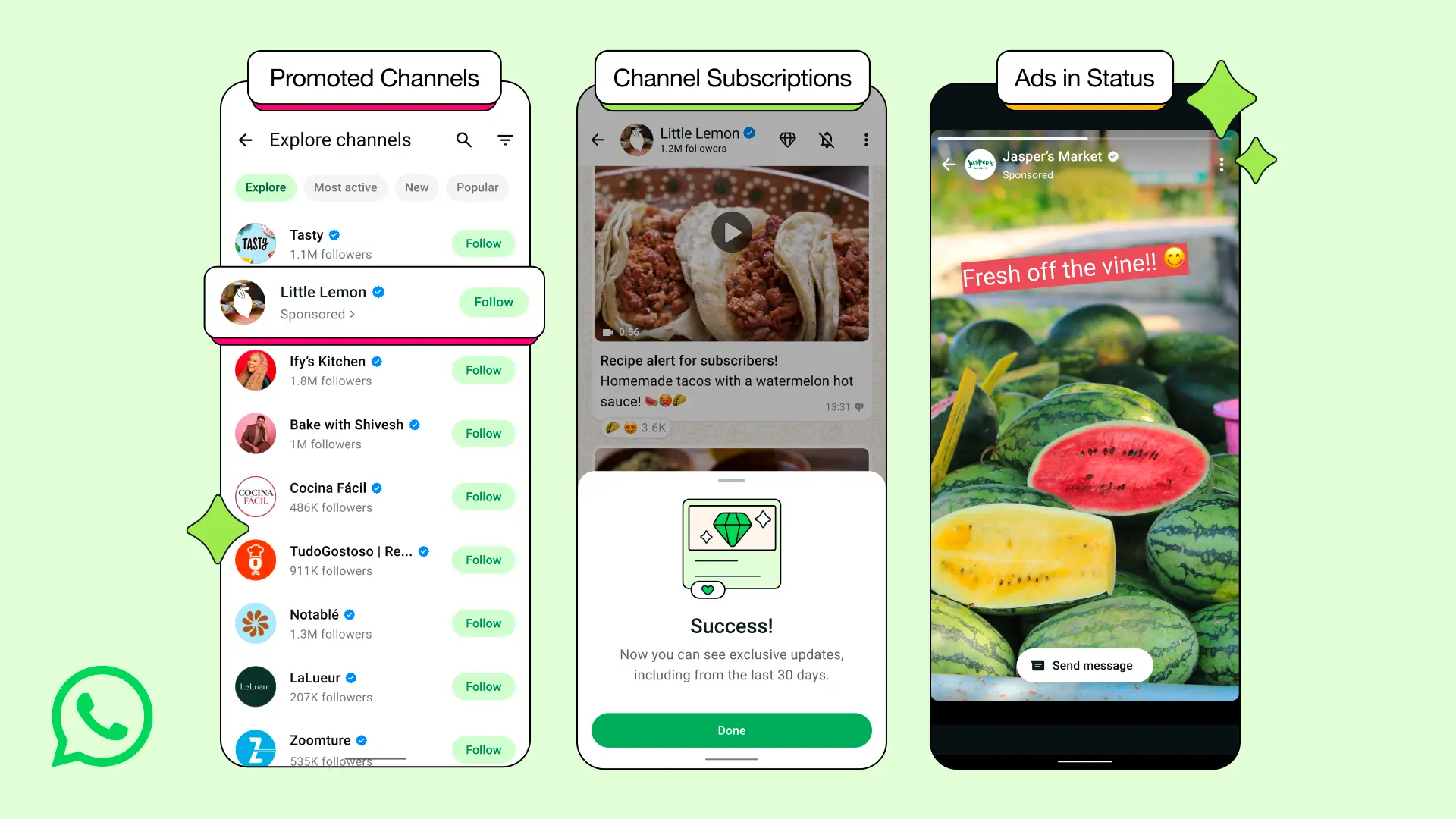WhatsApp Introduces Ads: Starting with Status Ads & Subscriptions

Meta has officially announced advertising on WhatsApp, marking a significant shift for the messaging platform after years of speculation and resistance from its original founders.
WhatsApp has officially announced a significant expansion of its business-focused features, introducing three major updates that will impact how users discover channels and businesses on the platform. And for normal users, we are getting Ads.
With 1.5 billion daily users already engaging with the Updates tab on WhatsApp every day. Businesses may get more sales from the upcoming changes, but users will have a terrible time with ads and their privacy.
The social media giant announced that businesses can now display ads through WhatsApp’s status feature, which functions similarly to Stories on other platforms. This feature, located in the “Updates” tab, typically allows users to share temporary text, photos, voice messages, and videos that disappear after 24 hours. Users will now encounter sponsored content alongside updates from their contacts.
This development amounts to a major policy reversal for WhatsApp. The app’s founders had strongly opposed advertising on the platform, and Meta previously shelved advertising plans in 2020. However, WhatsApp head Will Cathcart confirmed in 2023 that the company was actively developing an advertising framework. The move comes as Meta generated over $160 billion in advertising revenue last year, highlighting the financial incentive behind this decision.
Meta plans to personalize advertisements using what it describes as “limited” user data, including location information, language preferences, followed channels, and ad interaction patterns. Users who have connected their accounts through Meta’s Accounts Center can modify their advertising preferences through that platform.
The company emphasizes its commitment to privacy, stating it will never sell user phone numbers to advertisers or use private messages, calls, or group conversations to inform ad targeting. Meta positions the Updates tab as an appropriate space for advertising that won’t disrupt personal conversations.
Beyond advertising, Meta is introducing additional monetization features to WhatsApp. The platform will display promoted channels in the Explore section and launch a subscription service that provides exclusive content updates to paying users.

Channel Subscriptions
The introduction of channel subscriptions marks WhatsApp’s entry into the creator economy. Users will now be able to financially support their favorite channels through monthly subscription fees in exchange for exclusive content and updates. This feature positions WhatsApp to compete directly with platforms like Patreon, Substack, and YouTube’s membership programs.
For content creators and organizations, this represents a direct monetization opportunity that doesn’t rely on traditional advertising models. Channel admins can now build sustainable income streams from their most engaged followers, potentially leading to higher-quality, more consistent content production.
Promoted Channels
The second major feature addresses one of the biggest challenges facing content creators on any platform: discoverability. Promoted Channels will allow admins to increase their channel’s visibility within WhatsApp’s directory system, making it easier for users to find relevant content.
This feature essentially creates an advertising ecosystem within WhatsApp’s Updates tab, providing channel administrators with their first official tool to grow their audience beyond organic reach. The implementation suggests WhatsApp is learning from successful discovery mechanisms on platforms like Instagram, Twitter, and YouTube.
Status Ads
Perhaps the most drastic change for everyday users is the introduction of ads within Status updates. Meta says, these ads will help users discover new businesses and facilitate direct conversations about products or services. However, the average user would say otherwise.
The features are being rolled out globally, with businesses and channel administrators able to access more information about implementation through WhatsApp’s business resources. This global approach suggests WhatsApp’s confidence in the privacy-preserving nature of these features and their potential to work across diverse regulatory environments.
